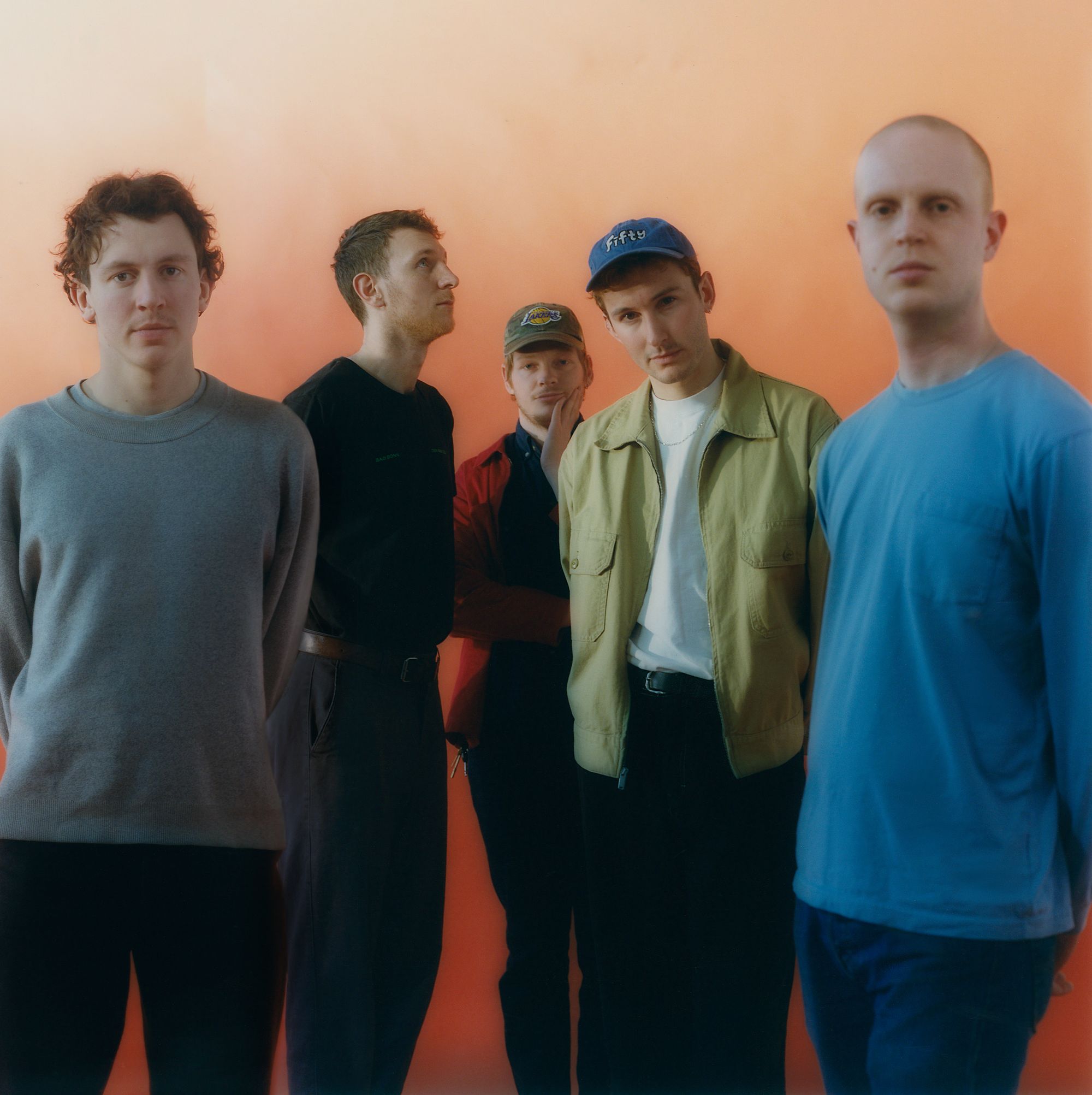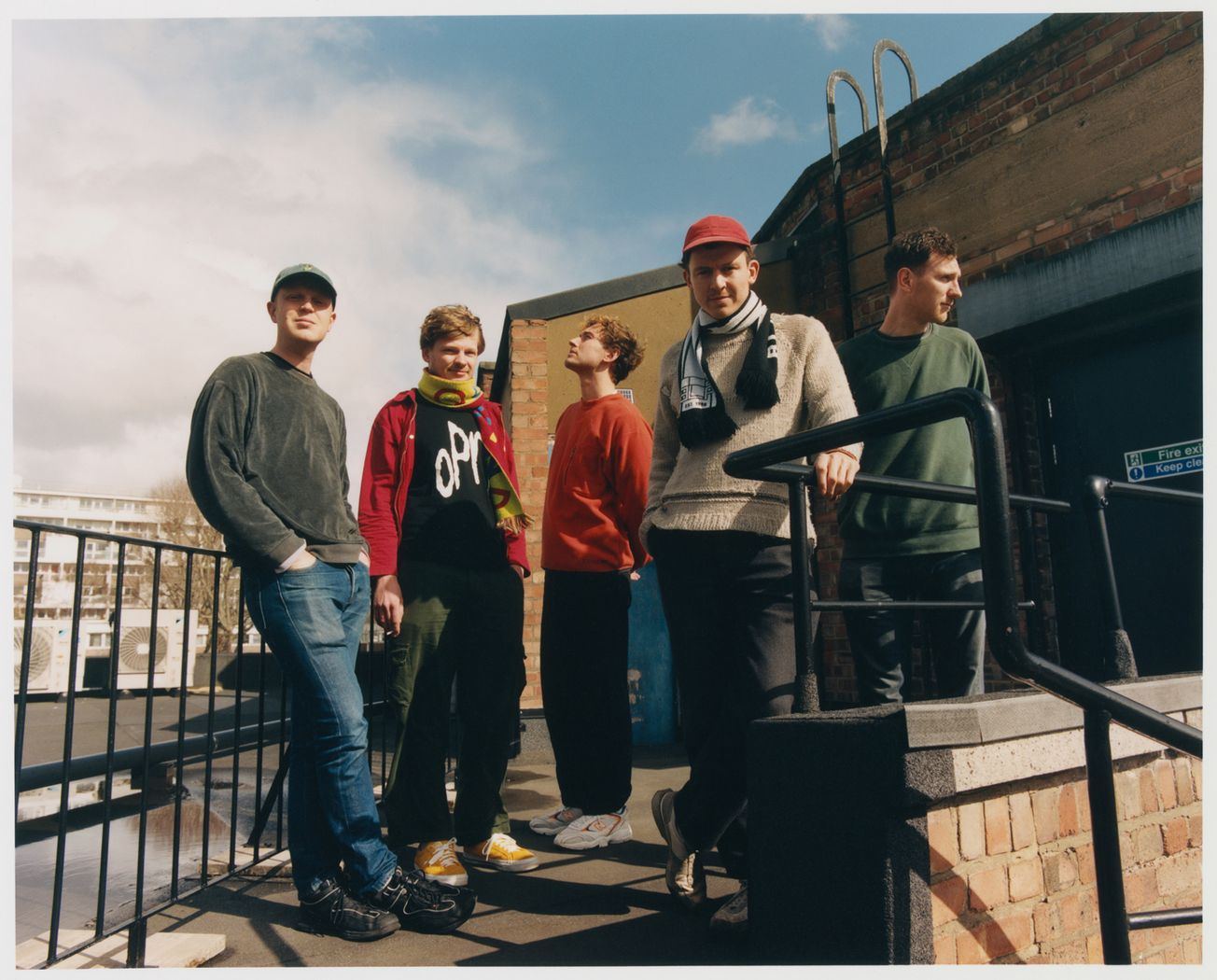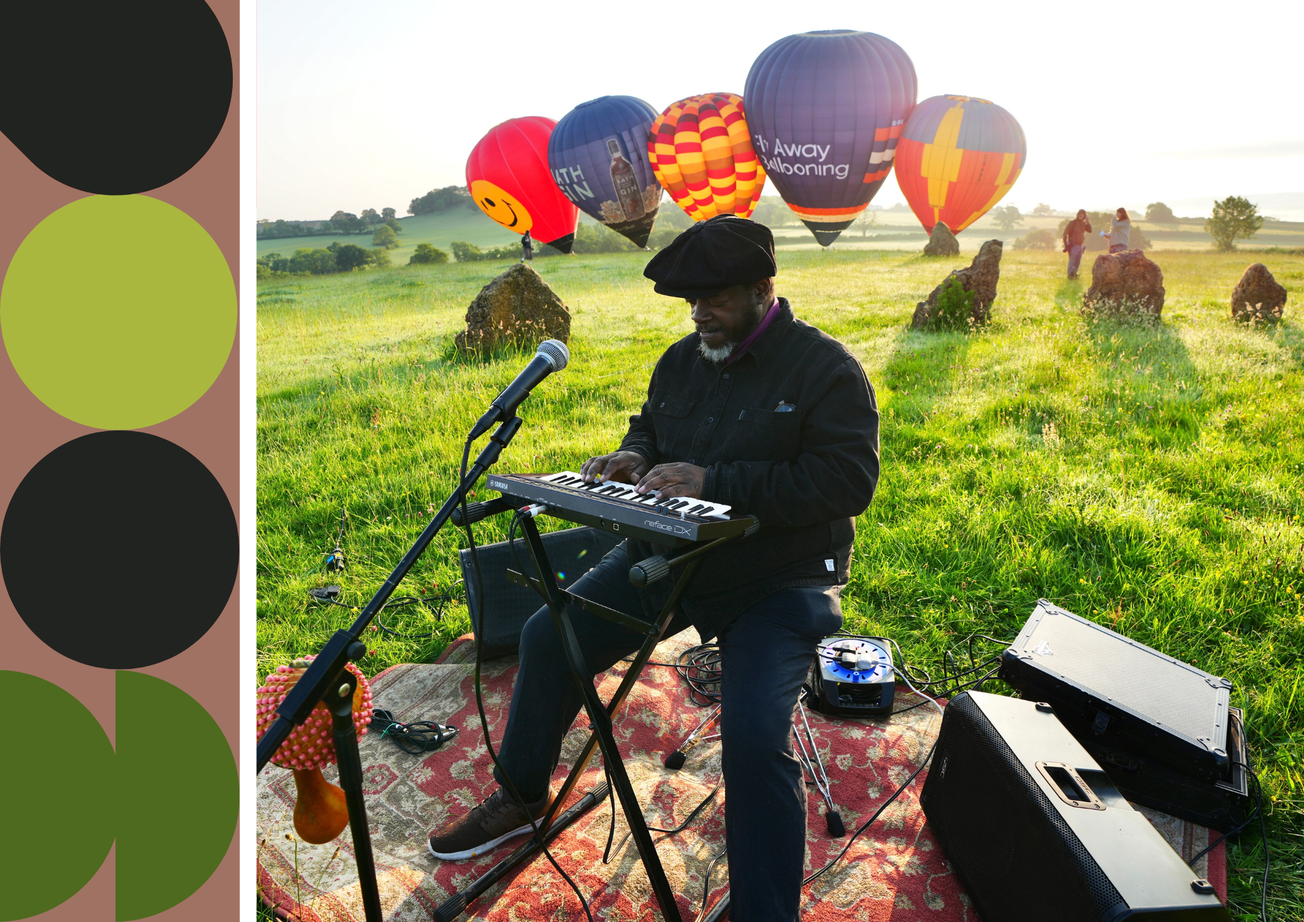By Jake Paterson, Co-Deputy Music Editor
Squid have always been outsiders. As Speedy Wunderground veterans they’ve expanded their initial political punk into something deeply progressive and experimental on their new record O Monolith. Their inspiration this time around takes its roots in neolithic English folklore which could be deemed quite esoteric for new listeners, but the record is so texturally inviting that it instead reaches out with open arms. I sit down with Ollie Judge, the band’s drummer and lead singer, to make sense of their monolithic new sound and direction.
Listening to O Monolith knowing their critically-acclaimed debut Bright Green Field lets you hear a band continue to fretfully try and tie down the chaos of their creativity into something resembling conventional songs. Squid create the space for themselves to experiment freely; whilst tracks on their debut pushed the ten minute mark, the new songs firmly occupy half of that timescale suggesting a band honing their craft to near perfection. The title of the new record muses on something immense and immovable; an enigma simultaneously ancient and modern that no single interpretation can provide the true meaning to. It's only for the initiated to peep into their world and slowly become absorbed by it.
"It was quite an organic change" Judge says of the transition between their debut and the new record and suggests that they had begun writing O Monolith before Bright Green Field had even been released. "I don’t know how conscious we were of [any stylistic change] really, the main thing was just trying not to repeat what we’ve done before," he suggests, "there was a moment when we finished writing it and we all looked around like s*** we’ve written a prog record!"
Judge continues: "It's a strange kind of time travelling folk record, I guess it kind of flips between past and present." Styles and textures interweave seamlessly between and during tracks; some are playful without sacrificing the band's well-known abrasive edge, and some explore brand new ground. "I think the first track we wrote was ‘Undergrowth’ and I was really gunning for the album to be a kind of hip-hop feeling album, but that didn’t really work out in the end."
'Undergrowth' instead pairs hellish inchoate cries with a tight proggy bassline that chugs through towards a final funky groove traced with oblivion. The track pulls on the English folkloric inspiration (the lyric 'Just pull me open and see what's inside' really hammering it home), where monuments from centuries ago can be approached in academic ways but never have their true meaning uncovered. When discussing this Judge lights up: "There's the stone circle in Avebury that's like the top dog, that's like the big daddy that everyone goes to," but the nearby Devil's Den (a neolithic tomb that cast fear into the locals and remind Pagans to convert to Christianity) was better inspiration for the record. "I think recording it in the countryside had a huge impact on the sound and the feel of the album," he suggests, "Like, 'Swing (In A Dream)' is about a dream that I had that I'm pretty certain was about the climate crisis."
He discusses how an external landscape such as this can encroach into your subconscious, and after listening to O Monolith and noticing how the political edge had been taken out of his lyrics (unlike the tracks 'GSK' and 'The Cleaner' that we as fans know and love) I was keen to know if any of the external world seeped into his natural microcosm. "I was trying to be less on the nose politically on this record I think," he said, "I think lockdown had a huge influence on the lyrics because in retrospect I was just so bored that I took on a pretty wild imagination." Drifting away from the real world, his vocals often take on a far more sombre and introspective tone throughout the record. "The music we're writing just doesn't suit just screaming over the top of it," he suggests, "I did a whole pass of the vocals over the whole record for the first take and it was mainly just screaming and then me and [producer] Dan Carey just thought it didn't really work."
"I don't want to be like a one trick pony, I guess, and you can do so much more with a quieter singing voice."
As a result, the band opened up to a style far more vulnerable in the sense that they don't lean heavily on bands who have come before them for inspiration but are driven by each other within their own folklore. Tracks like 'Swing (In A Dream)', 'Green Light' and 'The Blades' sound like no one else, and the band thrive when they are at their most experimental. "We’ve always been really interested in just experimenting with song structures," Judge says "I think Alex G does this quite a lot where the best part of the song only happens once and for quite a short amount of time and it makes you want to go back and listen to it over and over again just to reach that one moment. There’s a bit in 'Green Light' where the clarinets come in; they’re my favourite part of the record but it only happens for like 20 seconds."
Transferring this feeling to the live scene, where you’ve got one shot to get that 20 second span right, I suggest must be pretty challenging. "I'm getting there but I can’t really play ‘The Blades’ because it’s in seven and I’ve got to play along with the drum machine and sing at the same time so it’s kind of a massive thing that I’ve been thinking about for almost two years now!" he jokes.
Their upcoming tour of record stores for the album’s release sees the band play venues of barely 200 people for the first time in a while as they have grown to crowds of thousands in the UK and Europe. Judge tries to think back to some of the last intimate gigs they had played, firstly doting on a handful of small backrooms in America but remembers that "there was this really strange gig in Stockholm, it was like, have you ever seen Fargo? [I hadn’t] It felt like a little kind of ski lodge pub and like, I think you could get like 50 people in there and we turn up with like ten synths and a gong and stuff."
When he chimes that "O2 venues are objectively quite soulless and a bit s***" after I ask about the band’s triumphant headline of the Dot to Dot festival in Bristol last year that he loved, he goes on to talk about Bristol’s underground scene bringing up the likes of NOODS and Strange Brew before settling on the venue The Cube: "I saw someone bring their washing machine down and strap a bass to it and put it on a 30 minute cycle and then put it through loads of pedals and it made amazing drone music. There’s crazy s*** like that." He encourages you all to volunteer there, mostly for the pints like the "£2 Wiper and True which is kind of unheard of."

Making sure to continue their ethos of never repeating themselves, the band didn't return to record O Monolith in Dan Carey's studio in London but took the producer to the countryside at Real World Studios. "There's less room to do things differently sonically" Judge said when asked about why they didn't go back to Carey's converted post-office windowless studio; "if you record an album in the same studio it's going to fall into the trap of things sounding the same."
I rather apprehensively then ask about Judge's memories of being wrapped up in the initial Speedy Wunderground scene. "It seems like a long, long time ago. When did we do 'The Dial'? That was like 2018! F***ing hell that like five years ago!" He still has fond memories of the time; "you know, like meeting loads of like minded people, seeing loads of amazing bands at The Windmill … black midi put out ‘bmbmbm’ and then we put out ‘The Dial’ and then I remember leaving work one day and listening to the Black Country [New Road] single that came after that and it just felt like well this is crazy, it felt like the start of something really special"
Now that these bands have pushed their sound into the alternative mainstream whilst still retaining their idiosyncratic style, what was the start of something special has now become an institution for new bands to use as the model for creating something truly unique.
"What a guy! Dan Carey!" Judge quips.
I return at the end of the interview to asking about their stellar Glastonbury performance at the Park Stage last year that really won me over to their new sound. "I can’t even remember it. I was shell shocked. It took me like about a month and a half or two months to be like ok that was a good gig because I was so nervous. It felt like we were building up and up to that gig and as soon as it finished I realised, s*** we’ve still got like four months of gigs left; it felt like being pushed off a massive cliff."
"I haven’t watched the footage back either, I couldn’t bring myself to do it." As the band continue to push the limits of their sound, Judge's final comment should be taken as their tenet to repeat over and over. I for one couldn't be more excited to see where they go next.
O Monolith is out June 9 on Warp Records.
Featured Image: Alex Kurunis
Squid play Rough Trade Bristol June 11.








